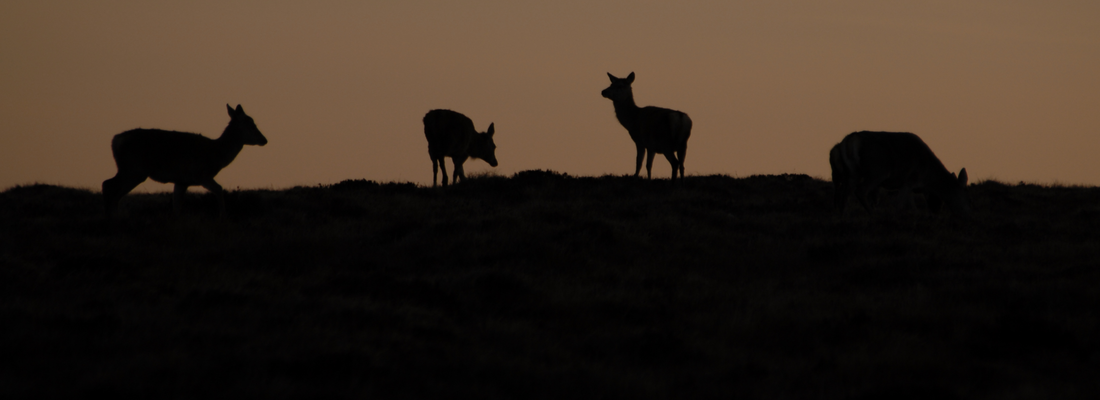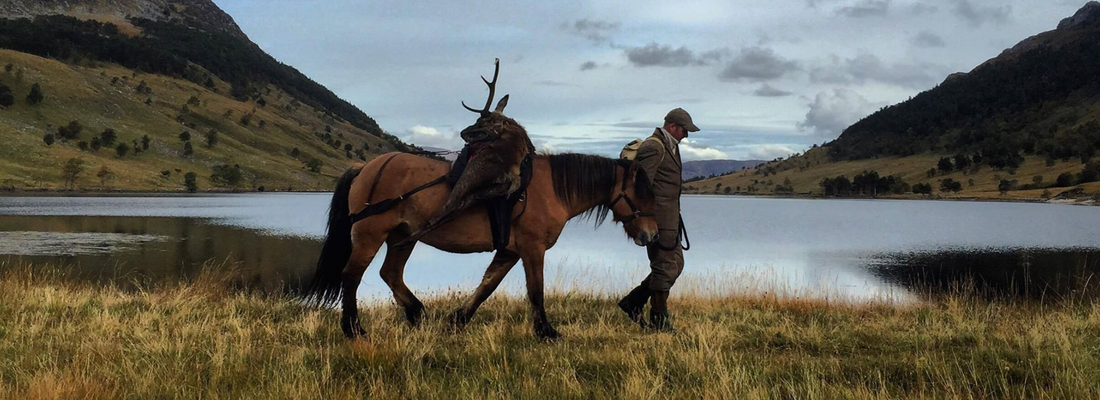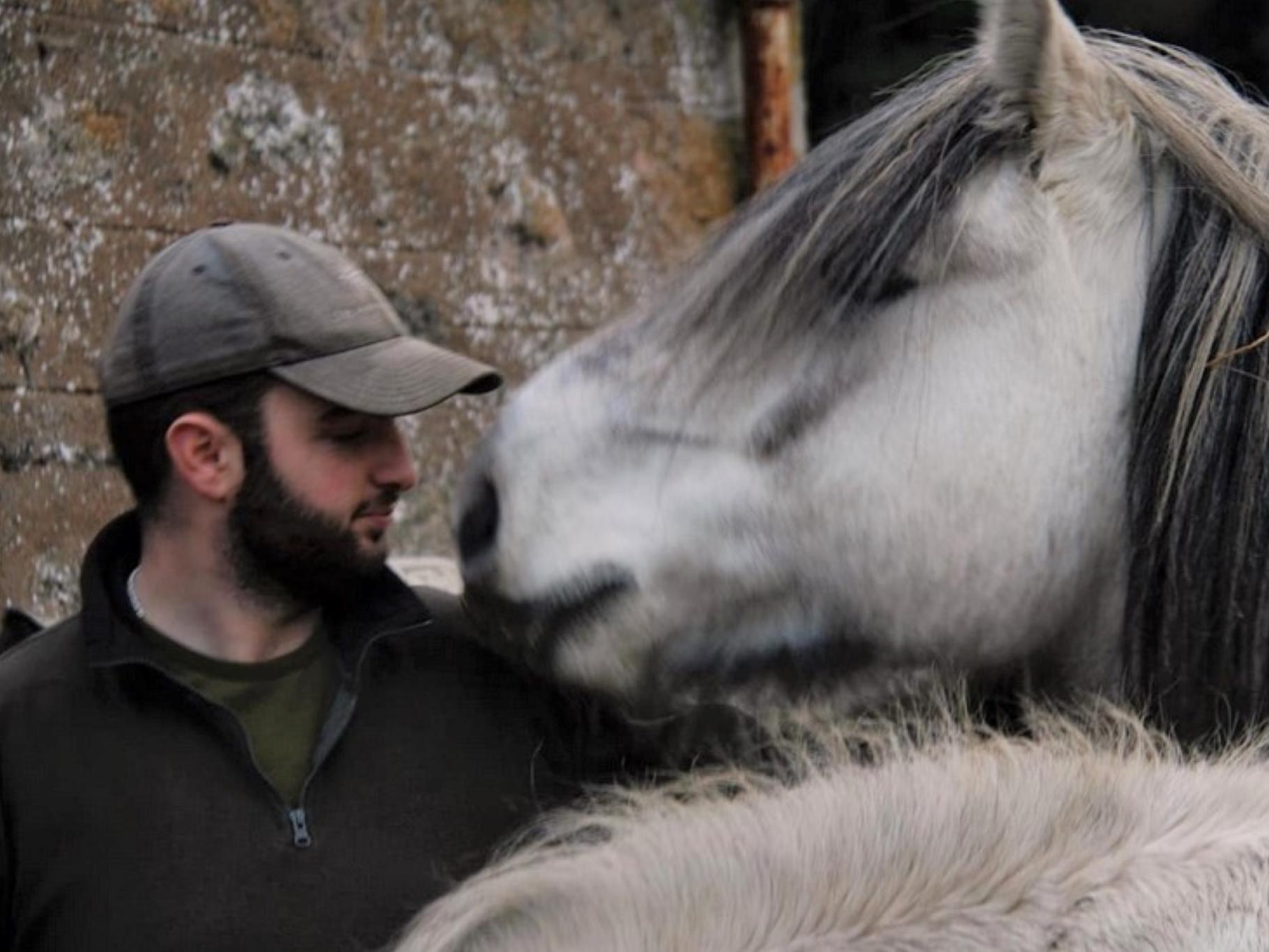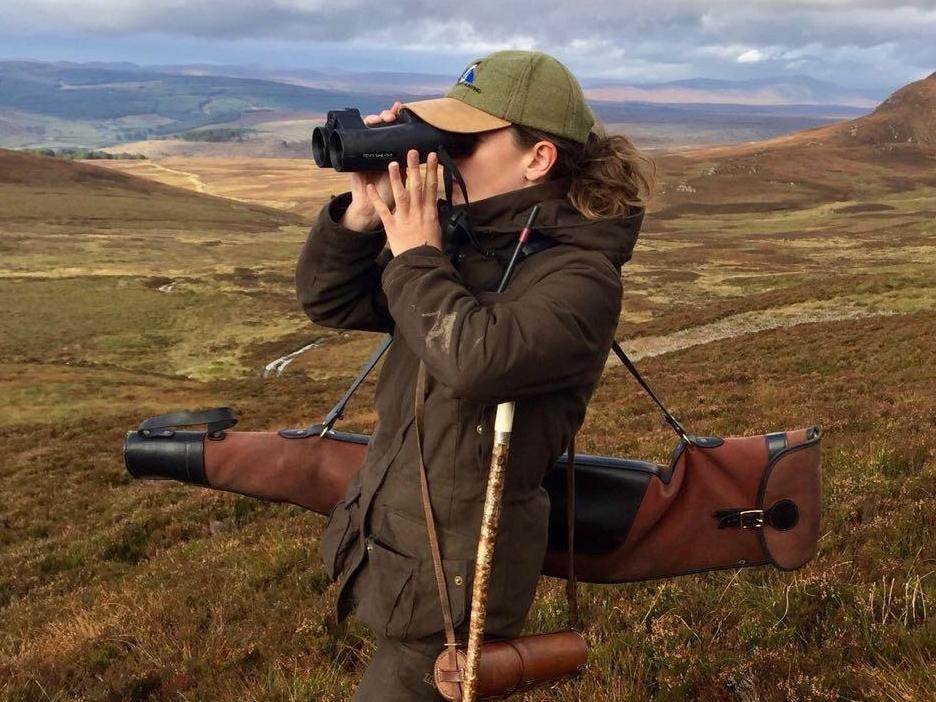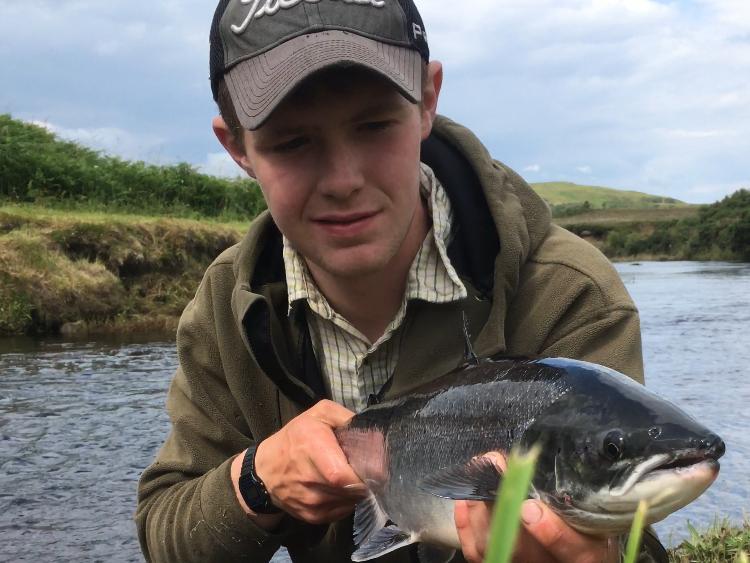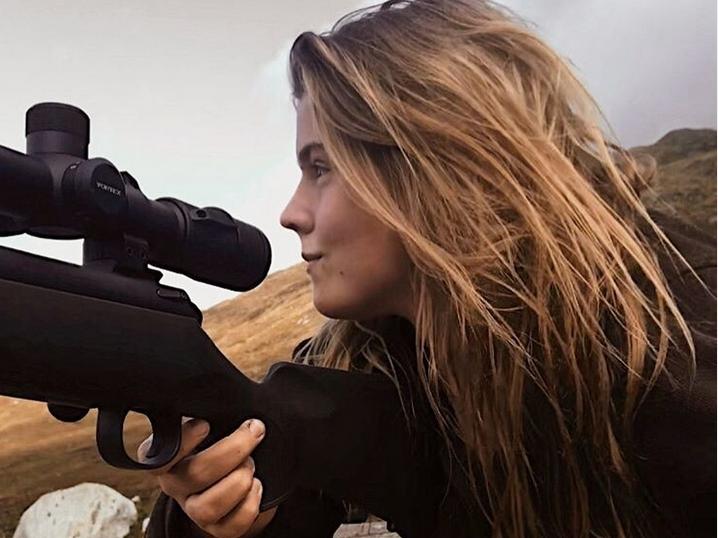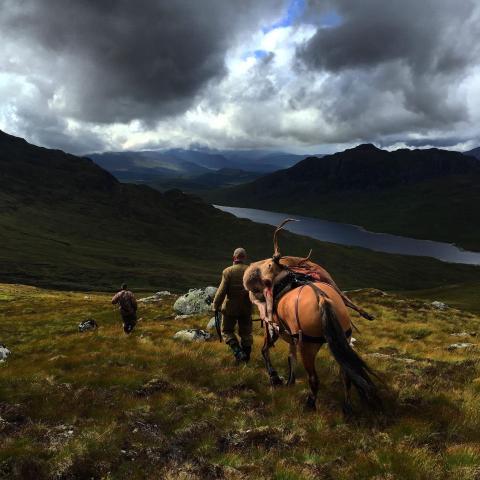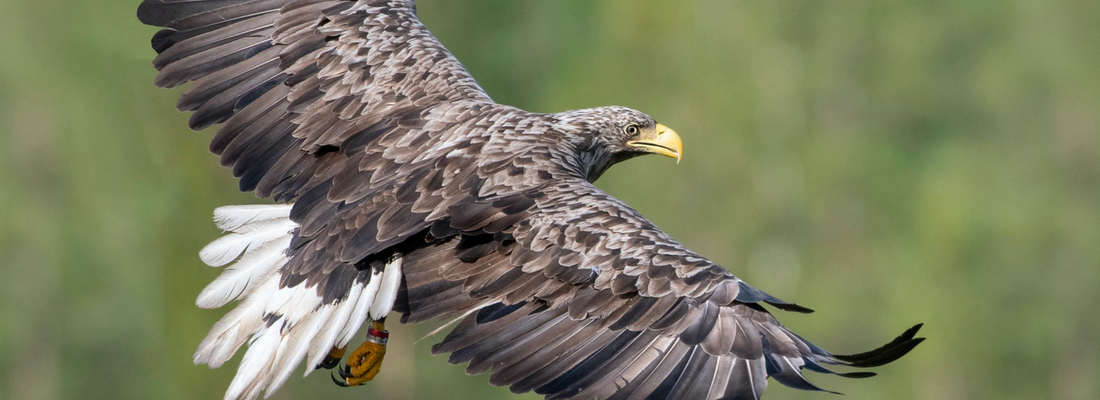
If you enjoy working outdoors and value wildlife conservation, the game and wildlife management industry can offer you lots of different career options.
It provides an incredibly rewarding career for people who can use their initiative, and are willing to take on responsibility and work hard. You will need practical skills, knowledge of the countryside and its wildlife as well as an ability to work well with people.
There are lots of opportunities available for new entrants into game and wildlife and there are many different options within the industry. Have a look at some examples of jobs for inspiration or watch our careers video.
Find out more about the some of the jobs available on Scottish estates by clicking on the arrows or icons in our presentation below:
Stalker
Stalkers have a highly skilled job, often working alone in wild and remote landscapes. Focusing on all aspects of successful wild deer management, a stalker contributes to the efficient culling of deer, for example on countryside estates, and the conservation and management of the natural habitat.
There can be a requirement to work closely with neighbouring estate stalkers to ensure an efficient, co-ordinated cull throughout the landscape.
Particularly during the stag stalking season, a stalker will take responsibility for small numbers of shooting guests. Stalkers are likely to undertake a range of other tasks including pest and predator control, maintenance or part-time shepherding. This will particularly be the case on upland red deer estates owing to the relatively short season. Tasks are largely outdoors and often undertaken in quite harsh weather conditions.
In the UK there are in excess of 14,000 active deer stalkers with the number being higher if you include those involved in recreational stalking.
Culling deer begins with shooting stags in the late summer to the end of the autumn. Red deer hinds are shot throughout the winter months. Roe deer are managed throughout the year.
Full-time employment opportunities on rural estates will often be in very remote upland locations such as the North-west Highlands of Scotland, although stalkers are employed throughout the UK on low ground estates as well as on farms and woodlands.
Working Conditions
Shooting estates operate seven days a week at all times of the year. The intensity and timing of work is related to the deer-stalking season. Therefore stalkers on estates usually work flexible hours based around the jobs that need completing at different times of the year.
In larger estates, they are likely to work on a rota system with other members of staff including early mornings, evenings and weekends. Roe buck stalking for example involves particularly anti-social hours in the late evening and again from 3.30am in the morning. There may be opportunities for both full-time and part-time working.
The work is an essential part of land management and conservation, benefiting moorland, woodland, farmland and other habitats. Stalkers need to be comfortable working alone in remote locations. Most of their working time is spent outdoors in all weather conditions. The work itself is active and physical, demanding patience, perseverance and skill over long hours.
Stalkers combine excellent local knowledge, the skills of an experienced hill walker with a deep understanding of the deer. A full driving licence is usually needed as are a Shotgun Certificate and a Firearms Certificate.
Salary
Salaries vary with experience, qualifications and between companies, but here's a guide to what you can expect.
£15,000
£20,000
Getting started
Work experience on an estate is very useful as an introduction to stalking and consequently, following various courses, gaining a position as an Under Stalker.
Employers are looking for people who:
- Have an enthusiasm and interest in deer, conservation and remote wild landscapes
- Enjoy working mainly outdoors carrying out a variety of tasks
- Have due care for the environment in which wild deer management takes place.
What experienced workers can do
- Promote good standards of health and safety
- Stalking and culling deer
- Transport and inspect dead deer
- Prepare for heather burning
- Manage game populations
- Maintain stocks of game birds
- Maintain habitats on estates.
Personal qualities you should have
- Good communication skills
- Able to plan and prioritise work
- Flexible and adaptable
- Able to use initiative.
Next steps
If you are conscientious, willing to turn up on time and at weekends and show yourself to be a committed employee, there may be an opportunity for promotion to a more senior position, especially if you work for one of the bigger Estates.
If you are working as a stalker with a smaller organisation, you may have to move to find a promoted position such as Head Stalker. This position involves managing all aspects of the deer programme including weapon safety, deer shooting, habitat conservation, resources, people and security.
Useful links
British Association for Shooting and Conservation
Game & Wildlife Conservation Trust
Institute of Fisheries Management
Gamekeeper
Gamekeepers work outdoors either alone or as part of a team, focusing on all aspects of gamekeeping and wildlife management. They contribute to estate game and habitat management planning; maintain game habitats and carry out other wildlife management activities including pest control as well as general conservation and land management.
Gamekeepers provide leadership and general support and administration of all support activities for shoot days. On larger rural estates or shoots, underkeepers may work to support the headkeeper who oversees the entire gamebird team.
In the UK there are around 5000 full-time gamekeepers. Gamekeeper job opportunities occur on rural estates and on smaller shoots, often in uplands such as the North-west Highlands as well as more lowland regions such as the Borders and Perthshire.
Working Conditions
Shooting estates operate seven days a week and at all times of the year. The intensity and timing of work is related to the nature of the operation on the ground and the cycle of the seasons.
Gamekeepers usually work flexible hours based around the jobs that need completing at different times of the year. In larger estates they are likely to work on a rota system with other members of staff. This will include early mornings, evenings and weekends. There may be opportunities for both full-time and part-time working.
You need to be comfortable working independently or in small groups in remote countryside locations. Most working time is spent outdoors in all weather conditions.
The work itself is active and demanding over long hours, often requiring perseverance, patience and physical fitness. Gamekeepers work with a variety of animals.
A full driving licence is usually desirable, along with Shotgun Certificate or Firearms Certificate.
Salary
Salaries vary with experience, qualifications and between companies, but here's a guide to what you can expect.
£11,000
£25,000
Getting started
Experience is an advantage, but training is usually provided.
Employers are looking for people who:
- Have an enthusiasm for wildlife, conservation and the countryside
- Enjoy working mainly outdoors carrying out a variety of tasks
- Have a strong interest for the environment in which game and wildlife management takes place
- Communicate well with clients and the public.
What experienced workers can do
- Support game and habitat management planning
- Maintain game and wildlife habitats
- Support shoot day activities
- Maintain the health and welfare of game birds
- Communicate with others
- Monitor and maintain health and safety
- Prepare for and support heather burning
- Maintain breeding stock
- Use and maintain equipment..
Personal qualities you should have
- Good communication
- Able to plan and prioritise work
- Flexible and adaptable
- Able to use initiative.
Next steps
If you are dedicated, willing to turn up on time and at weekends and show yourself to be a committed employee, there may be an opportunity for promotion to a more senior position if you work for one of the larger estate businesses.
If you work within a small business, you may have to move companies to get a job as a Head Gamekeeper.
Useful links
British Association for Shooting and Conservation
Game & Wildlife Conservation Trust
Institute of Fisheries Management
